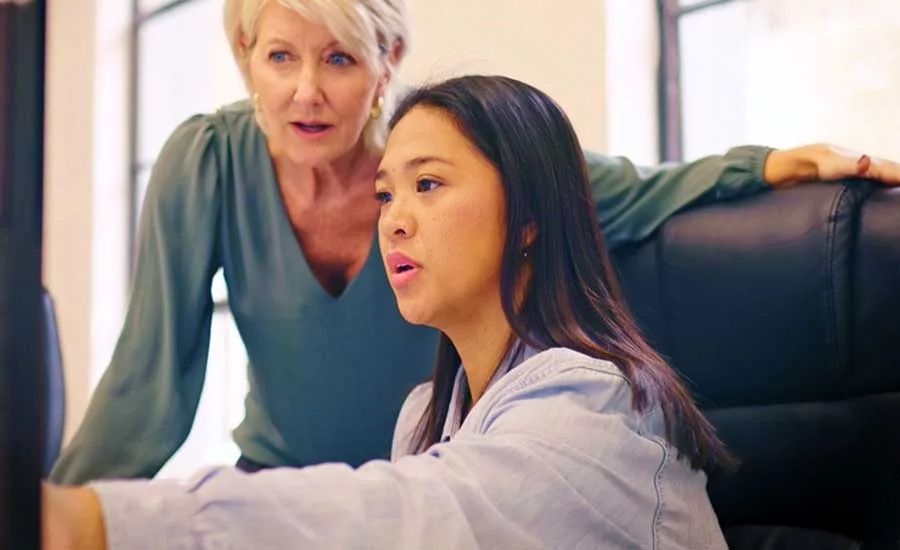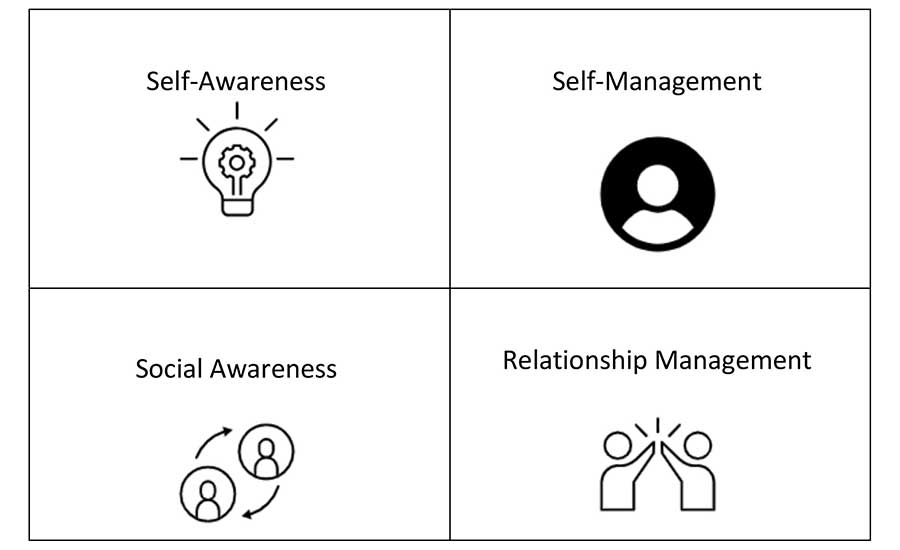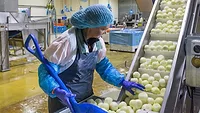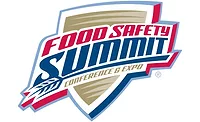Developing Food Safety Leadership Skills: Building the Workforce of Tomorrow
What does it take to be a great food safety leader?

According to an August 2022 article by McKinsey & Company, "…leadership is not something people are born with—it is a skill you can learn. At the core are mindsets, which are expressed through observable behaviors, which then lead to measurable outcomes."1 That is why the Educational Advisory Board for the Food Safety Summit has chosen to offer food safety leadership skills training on the Summit program.
Leadership at the Food Safety Summit
For the past couple of years, food safety leadership has been included as a session on the educational program for BNP Media and Food Safety Magazine's annual Food Safety Summit. The Food Safety Summit recognizes how important it is to continuously invest in the development of future leaders in food safety by providing opportunities for experienced leaders to share their expertise and be accessible.
In 2022, the Food Safety Summit session was titled, "What Makes a Good Leader? Lessons, Feedback, and a Call to Action From Leaders in Food Safety." The target audience was early-/mid-career professionals. In the roundtable, which was held onsite in Rosemont, Illinois, three industry and academic leaders shared pivotal moments and experiences that shaped them into the leaders they have become. They discussed what the right balance should be when it comes to technical prowess and self-awareness. Finally, the session addressed the primary intrapersonal and interpersonal drivers that influence an individual's trajectory toward an accomplished, sustainable, and fulfilling career. Some takeaways for the attendees included references to relevant podcasts.
During a workshop on "Developing Food Safety Leadership Skills" that was held at the 2023 Summit in Rosemont, the speakers—all experienced food safety leaders—shared individual journeys, advice, knowledge, and real-life lessons from their careers. The workshop explored components for food safety professional development and business management, and also identified the building blocks to becoming a thought leader within a company.
The panelists shared lessons learned during the growth of their careers, including how failures have played a role in their improvements as leaders. Topics discussed included advice on how to start a career, how to find a mentor, critical lessons learned, and how to be authentic and vulnerable through the art of storytelling. The workshop also included an interactive component with a leadership development coach, who provided an overview of some development tools that attendees could take with them into their careers. Ample opportunity was provided to the attendees to ask various questions of the speakers.
Building Blocks for Leadership
The speakers identified the following attributes as building blocks for leadership:
- Treat people with respect:
- Even in the most challenging of times
- Be kind, and be cognizant of others' time
- Learn the business processes:
- Educate yourself on the business processes in your company
- Understand the bigger picture
- Take on some non-food safety/quality roles
- Develop your own voice:
- Speak, because your voice is knowledgeable, useful, and necessary
- Be authentic and understanding
- Become more self-aware:
- Seek to learn more about your strengths, weaknesses, and opportunities
- Be honest with yourself, and look for opportunities for improvement
- Know who you are, and be true to that knowledge.
Some sage advice was shared by the speakers based on lessons learned during their own career development:
- You are not alone:
- Build relationships and seek help, support, advice, and guidance
- Find a support group among your fellow professionals
- Assemble a personal "board of directors"
- Learn from your mistakes:
- Mistakes and failures are stepping stones for success
- Do not be afraid to make mistakes (real or perceived)
- Own up to mistakes when they do happen
- Embrace continuous improvement:
- Be willing to pivot or change direction
- Strive for growth
- Keep a positive mindset and persevere
- Act as a leader:
- Take a chance on people, and listen to prospective employees
- Even in a social media-charged world, interviews remain a two-way interaction.
The 2023 leadership workshop also included an overview of emotional intelligence by transformational coach Linda Manning, as a way to enhance leadership. This part of the workshop included short participation exercises to introduce attendees to the topic of emotional intelligence.
What is Emotional Intelligence?
Emotional intelligence (EQ) comprises four quadrants: self-awareness, self-management, social awareness, and relationship management (Figure 1).
Looking for quick answers on food safety topics?
Try Ask FSM, our new smart AI search tool.
Ask FSM →

Having a high EQ means that you are able to:
- Accurately identify your own emotions and how they dictate behavior
- Manage your emotions, even in challenging situations
- Correctly sense and understand the emotions of other people
- Effectively manage your relationships with others.
EQ is so critical to success that it accounts for 58 percent of performance in all types of jobs, according to Emotional Intelligence 2.0 by Bradberry and Greaves.2 Only 36 percent of people tested in a major EQ study were able to accurately identify their team members through self-awareness assessments like DiSC®3 and Myers-Briggs Type Indicator (MBTI).
DiSC assessments3 for teams have proven to be effective for improving self-awareness. They can also help a team foster understanding and improved communication, and enable the generation of a team report. DiSC assessments can also be used in conjunction with "The Five Behaviors®"4 of a cohesive team, which can help teams function more efficiently.
The assessments require participants to answer a series of questions to determine their style. DiSC results describe behaviors and interpersonal interactions. MBTI focuses on personal preferences and energizing factors. MBTI tends to lead to deeper conversations, while DiSC tends to be easier to remember and use.
The session speakers shared their prior experiences with both DiSC and MBTI assessments. They acknowledged that these assessments can be powerful tools for developing and leading successful food safety teams.
Takeaway
Based on the positive feedback from attendees at the 2023 Food Safety Summit, the topic of "Importance of Leadership—How to Apply It To Get Results" will be featured as the opening session for the 2024 Food Safety Summit in Rosemont, Illinois.5 The three-hour workshop will build upon themes and feedback from the prior years and delve deeper into the tools and experiences required to develop better food safety leadership and communication skills for business.
An appetite for this topic is demonstrated by graduates entering the industry, as well as by early- and mid-career food safety professionals. These individuals are actively looking to develop their leadership skills pertaining to food safety. Additionally, food companies in all sectors of industry want to retain their existing food safety staff and provide professional development.
Food safety leaders can and should share their career experiences, advice, and lessons learned to help guide the food safety leaders of the future. If you would like to learn more about developing food safety leadership skills for you, your team, or within your company, please consider attending the "Importance of Leadership—How to Apply It To Get Results" opening session at the 2024 Food Safety Summit in Chicago on May 7, 2024. For more information, please visit the Summit site here.
References
- McKinsey & Company. "What is leadership?" August 17, 2022. https://www.mckinsey.com/featured-insights/mckinsey-explainers/what-is-leadership.
- Bradberry, Travis and Jean Greaves. Emotional Intelligence 2.0. Talentsmart, January 1, 2008.
- DiSC Profile. "What is DiSC®? Deepen your understanding of yourself and others." https://www.discprofile.com/what-is-disc.
- John Wiley & Sons Inc. "The Five Behaviors®: A Wiley Brand." Developed with Patrick Lencioni. 2023. https://www.fivebehaviors.com/.
- BNP Media and Food Safety Magazine. "Food Safety Summit: Agenda." May 6–9, 2024. https://www.food-safety.com/food-safety-summit/agenda.
Gillian Kelleher is the CEO of Kelleher Consultants LLC and the Chairperson of the Educational Advisory Board (EAB) for the Food Safety Summit. She was formerly Vice President of Food Safety and Quality Assurance for Wegmans Food Markets, where her scope and responsibility included all aspects of food safety and quality for stores, self-manufacturing, distribution, and Wegmans' private-label program. Ms. Kelleher is a past co-vice chair of the Global Food Safety Initiative (GFSI) Board of Directors, a member of the Board of Directors of Stop Foodborne Illness, a past member of the Board of Directors of the American National Standards Institute (ANSI), a longstanding member of Harvard's Private and Public Scientific, Academic, and Consumer Food Policy Committee (PAPSAC), and a member of the Editorial Advisory Board of Food Safety Magazine. Gillian also leads the Leafy Greens Safety Coalition (LGSC).
Spir Marinakis is Vice President of Food Safety, Quality, and Technical Lab Services for processed meats, further processed poultry, fresh poultry, and fresh pork at Maple Leaf Foods. As overall leader of this function, she is accountable for the strategic direction to deliver on Maple Leaf's Food Safety and Quality (FSQ) strategy, the Food Safety Promise, quality vision, and the day-to-day operations of the FSQ management systems, microbiology and chemistry labs that service all Maple Leaf plants, as well as execution of the Sanitation strategy. Ms. Marinakis began her professional career at Unilever Canada, one of the world's largest CPG companies. She progressed through various roles that included food scientist, sales representative, brand manager, innovation manager, R&D/QA manager, and Canada and customer activation manager, North America. During this time, she achieved two prestigious Global Innovation Awards for innovative concepts and successful execution. Throughout this time, her efforts on the commercial side of the business enhanced her appreciation of the importance of innovation and customer-centric focus.
Chitsanzo (Chiko) Kachaje, M.Sc., joined Home Market Foods in 2003. She is responsible for all food safety and product quality programs including interactions with regulatory agencies, auditors, and customers. Prior to joining Home Market Foods, she was a Quality Control Supervisor at Hans Kissle. She has served on the Food Science Industrial Advisory Board for the Chemistry and Food Science Department at Framingham State University since 2015. Chiko is originally from Malawi. She holds a B.Sc. degree in Biology and Chemistry from the University of Malawi, Chancellor College, and an M.Sc. degree in Food Science and Nutrition from Framingham State University.
Kim Rice is Vice President of Food Safety and Quality for Rose Acre Farms. She has spent more than 25 years in regulatory affairs, food safety, and quality assurance. Her experience includes regulatory compliance; HACCP/preventive controls; sanitation; crisis management; GFSI certification; food safety and quality auditing for manufacturing, distribution, and restaurant operations; Lean Six Sigma; product lifecycle; project management; and animal welfare. Kim's extensive industry experience also includes operations and product lines ranging from bakery and dry blending (batters/breaders, bakery mixes, seasonings) to meat and poultry ready-to-eat foods, as well as processed and fresh products.
Linda Manning, M.A., has been a leader in talent and organizational development and human resources both inside and outside organizations for over 25 years. Her success stems from her ability to quickly understand "people issues" and team dynamics and how they relate to the core business and culture. She has worked in many industries including healthcare, health insurance, tech startups, philanthropy, and consumer goods. Ms. Manning is certified/trained in Myers-Briggs Type Indicator, DDI, Insights, Graphic Facilitation, Success Coaching, Individual and Team Resilience Profiles, StrengthsFinder, and DiSC. She holds a bachelor's degree in Psychology, a master's degree in Organizational Communication, and a certificate in Leadership for Change. She has coached executives in the U.S. and Asia.








